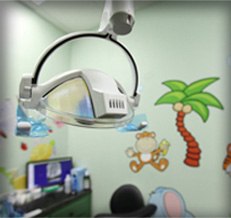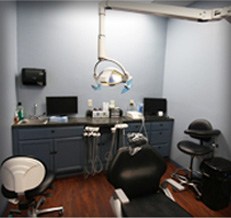 Did you just get your new dentures in San Antonio? Don’t be concerned if you experience some initial discomfort while your mouth is adjusting to the feel of them. Taking the time to get used to your restorations can ensure that you get the most out of them. They’ll improve your oral health and quality of life by repairing your ability to do basic functions like chew and speak again. You won’t need to sacrifice your comfort for your new and improved smile, but you will go through a short period where your dentures are going to feel like foreign objects in your mouth. These four tips can help speed up your adjustment period and give you an idea of what to expect.
Did you just get your new dentures in San Antonio? Don’t be concerned if you experience some initial discomfort while your mouth is adjusting to the feel of them. Taking the time to get used to your restorations can ensure that you get the most out of them. They’ll improve your oral health and quality of life by repairing your ability to do basic functions like chew and speak again. You won’t need to sacrifice your comfort for your new and improved smile, but you will go through a short period where your dentures are going to feel like foreign objects in your mouth. These four tips can help speed up your adjustment period and give you an idea of what to expect.
Give Them a Chance
It’s important not to give up on your dentures as soon as you get them. They’re going to feel like an odd object in your mouth and won’t begin feeling like a natural extension of your body until after your first few weeks with them. It may even be shocking how different they feel at first but remember that won’t last forever, and you’ll get used to the way they feel.
Be patient while you re-learn how to chew and speak with them. You may experience some soreness. If you’re uncomfortable, you can give your mouth a break by removing your dentures every few hours. If you continue to experience discomfort and irritation and feel they need readjusting, don’t hesitate to bring them to your dentist. Just remember to give them a chance, because they’ll improve your quality of life if you do.
Practice Speaking With Them to Avoid Embarrassing Moments
With your new dentures, your mouth will have to get used to holding them in place. You may experience some shifting and discomfort, making it difficult to speak and chew at first. You can practice getting better by reading aloud to your self and even singing in the shower, as silly as that may sound. This will improve your ability to pronounce certain words and sounds more easily and help you avoid slurring.
Strengthen Your Cheek Muscles
Your cheek muscles are a key player in holding your dentures in Central San Antonio in place. They help you chew and swallow food. Like any body part, these will need to be exercised over the first month or so to give you more control over your restorations. If you have cheek pain that continues over the course of several weeks, this could be a sign that your dentures don’t fit properly, so be sure to schedule an appointment with your dentist.
Ask Your Dentist For Adhesive Recommendations
Your dentures will rely on suction to stay in place, but adhesive can be incredibly helpful too. You can experiment with many different kinds to find the one that’s right for you. Ask your dentist if they have any recommendations and start there. Not only can it help by reducing your irritation while you’re adjusting, but it can also make them more stable.
At the end of the day, it’s important to remember that the adjustment period is well worth going through so you can reap all the benefits that your new dentures will have to offer. If you continue experiencing issues, be sure to visit your dentist, because your restorations may need some adjusting.
About the Author
Dr. Rachi Kadamani has been practicing dentistry for over 18 years. She is passionate about helping people suffering from tooth loss restore the function and look of their smiles. She offers a variety of solutions to do this, including crowns, bridges, dentures, and even implants. For questions or to schedule an appointment to find out what option is the best for you, visit Laith Family Dentistry’s website or call 210-782-6842.







